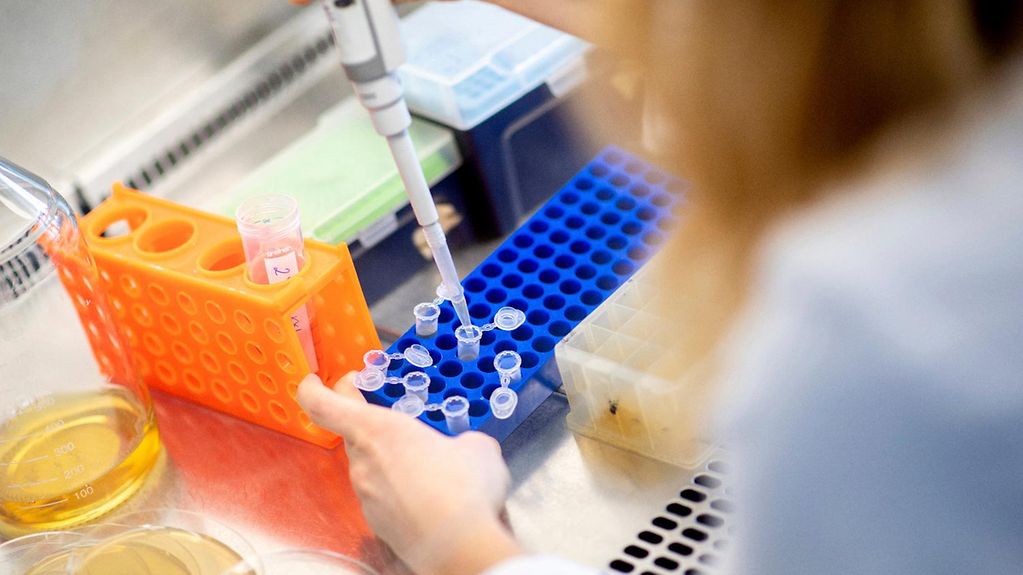Research
The Federal Government intends to provide 150 million euros to fund six projects dedicated to the development of medications to treat COVID-19. “We are optimistic that the trials will result in effective drugs that can then be approved,” said Federal Research Minister Karliczek.
3 min reading time

The development of new medications is being funded so as to be able to continue to treat coronavirus patients effectively.
Photo: picture alliance/dpa
“We will have to learn to live with the virus,” stressed Federal Health Minister Jens Spahn at a joint press conference with Federal Research Minister Anja Karliczek. “At the moment, the vaccination campaign is helping us restore our freedom and allowing us to get back to normal,” said Spahn. But there would continue to be cases of people falling ill with COVID-19, he said.
Vaccines protect – medication aids recovery
“The Delta variant of the SARS-CoV-2 virus is demonstrating clearly that, unfortunately, we will have to continue to expect people to fall ill with COVID-19 in the future,” stressed Karliczek, strongly advocating vaccination. But in addition to those who could or did not want to get vaccinated, there were also cases where people became infected despite having been vaccinated, she said, which was why additional effective drugs were required to treat sufferers.
“Our aim is to make the pandemic less frightening in the long term, too,” said Spahn. “This is why we’re funding the development of new drugs, so we can continue to treat coronavirus patients effectively moving forward. This is an investment in the future, too: after all, this will strengthen Germany as a research and development hub in the field of biotechnology.”
There would not be one single drug to treat the coronavirus, stressed Karliczek: a combination of effective medications would be required to help patients effectively, depending on the stage of their illness. For this reason, support is being provided for six small and medium-sized biotech companies to develop their products.
Up to 150 million euros for the most promising projects
A 20-member expert commission headed by the President of the Paul Ehrlich Institute, Professor Klaus Cichotek, had examined the proposals submitted and selected the most promising ones, said Karliczek. “We plan to support the projects proposed by the coordinating companies AdrenoMed AG, Apogenix AG, Atriva Therapeutics GmbH, CORAT Therapeutics GmbH, InflaRX GmbH and DRK Baden-Württemberg-Hessen gGmbH, with total funding of up to 150 million euros,” announced the Minister.
Funding is to be provided for projects that are already at an stage of advanced clinical development, and it will be maintained through to final approval. Trials are planned on moderately ill patients as well as on those who are severely to critically ill and being ventilated. Among other things, research will be carried out into treatment with antibodies and infection-blocking molecules. According to Karliczek, some of the drugs have already been researched in connection with diseases such as cancer and sepsis.
The Federal Research Minister warned against exaggerated expectations, however. She said there was still no indication of when the new drugs might be available, since this mainly depended on how effective they proved in clinical trials. “Some of the projects will ideally plan to obtain conditional approval – this could happen as early as next year,” said Karliczek.
On 14 May 2021, the Federal Ministry of Health and the Federal Ministry of Research jointly published a “Guideline for the funding of the clinical development of COVID-19 medicinal products to be used in healthcare settings and the relevant manufacturing capacity.” The aim of this is to ensure that candidates for new medications that have undergone successful testing in phase I and II clinical trials get to patients in Germany as quickly as possible.